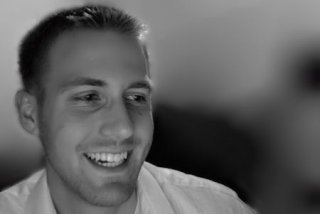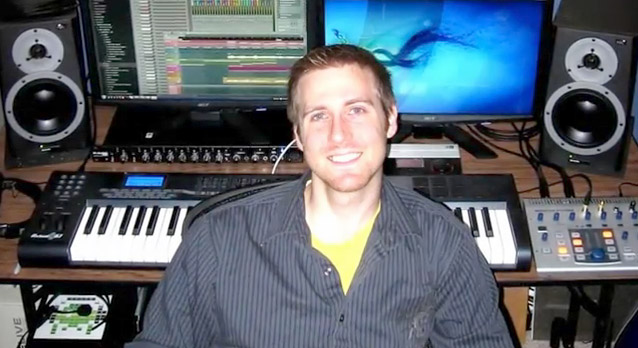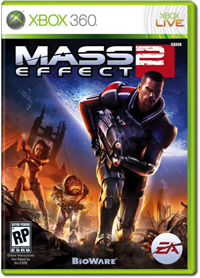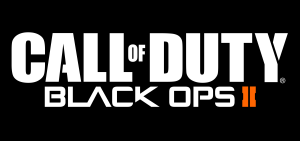Big Giant Circles
|
How did you get involved in creating music ? I grew up with an interest in music. Piano lessons early on, played in the high school band, tried out the songwriting thing in my late teens. At some point in high school I started playing around with MIDI notation software–there was this one program that came free with my family’s computer, I think it was called Midisoft Studio if I remember, but I would spend hours and hours arranging songs (mostly from video games) and composing my own stuff. Looking back it was a horribly primitive and grueling process. I would select each kind of note and then manually click them all in one by one. I must have been really patient back then. How did you end up using FL Studio ? Sometime around early ’03 I was still trying to succeed at the songwriting thing. I’d purchased an 8 track digital recorder and used a Yamaha keyboard to lay down everything that wasn’t my acoustic guitar. For the drums, I’d usually just try to play them in with my fingers, and I was just never very good at it so I started looking around for something else I could rely on. After browsing MPCs and Drum Sequencing hardware, someone told me about Fruity Loops. So I snagged the demo and realized how easy it was to program drums and get them to sound really great, and that’s all I used it for initially. When I started browsing through the included demo tracks and realized that I could actually write and produce entire songs with it, I bought the Producer’s edition later that week–my 8-track has been alone and bitter ever since. Shortly after that, I stumbled across OverClocked ReMix Over the next few years I “ReMixed” (rearranged, really) several tunes from various video games I’d played over the years, and that’s where I really grew into FL. There’s a huge base of FL users that hang out there, and because of OCR’s fairly strict quality-control for accepting ReMixes, I really learned how to make the most out of my productions. There’s some serious talent in that community. I definitely owe a huge portion of my success, especially working on Mass Effect 2, to many of the folks over there. Tell us about your involvement with the music on Mass Effect 2. I was just one of four composers on the team, led by Jack Wall, who has scored some other great games and also conducts the Video Games Live concert tour. The Mass Effect soundtrack has a very Sci-Fi feel to it. I personally like to think of the music in the series so far as kind of a hybrid between Blade Runner and maybe Star Wars or something. There’s lots of synth stuff going on, occasionally layered with orchestral elements. For me, automating parameters played a huge role in achieving that sound. I’ve always liked the way FL handles automation clips, so that was a great feature to rely on. Also, while I would play in a lot of parts with my keyboard, I did a LOT of writing and editing within FL’s piano roll, which in my experience remains the best by far out of all the others out there. I’m actually a bit surprised that the DAWs haven’t outright ripped it off entirely. It’s so smooth and intuitive, I really love it. |
Jimmy has also worked on the soundtrack to Cal of Duty Black ops II. The game sold more than $500 million in sales in the first 24 hours of release. More on that below. What does FL Studio mean in your setup, how do you use it in your productions? FL has always been centric to my studio. It’s the cornerstone of my creative process, currently. I can get ideas out quickly and as mentioned, the piano roll is crucial to me. Automating and mixing is intuitive and thanks to jBridge I really have no memory restrictions, which is great since I tend to work with large sample libraries. As of right now I think there’s a little room for FL to grow for scoring to video, but it is still capable of getting the job done. What do you think of the myth about FL not being a professional audio tool? I worked for Guitar Center a while back, and one thing I learned is that 99% of the time whenever people complain about something like that, they’re just closed-minded because they think that “their” way is the best way. And crazier still is that many of them haven’t ever even tried FL! I really don’t like that kind of perspective–it’s like complaining about a kind of food you’ve never eaten before. Besides, I think the musical results speak louder than the user, and good and bad music can come from any software program, whether it costs $200 or $2000. All that aside though, I think that FL has continued to evolve over the years and is steadily getting away from those absurd assumptions. I’ve been really happy with each new version, and as a long time user I can’t help but be proud to see it gradually get more of the respect it deserves. I can’t wait to see what future versions of FL will offer. What do you think about using hardware & software in the future? As I said, I’m kind of a gear head, collecting software is almost a sickness to me–I probably have way too much of it already. But what can I say? Software has come such a long way, and it’s clearly proven its merit in modern music production (and less wires and cables to worry about!) Haha, I know some people will hate me for saying this, but half the time I’m just as content using virtual plugins as I am using “the real thing”. (That being said, if I won the lottery tomorrow, one of the first things I would do is go fill my house with every hardware synth I could get my hands on.) 😉 Can you tell us anything about your upcoming projects? I’ve got a few different things I’m either currently working on or about to start work on, but nothing I’m allowed to talk about for now. EDIT: Such as Call of Duty Black Ops II Here’s the tracks I wrote for the game, most notably, the multiplayer theme (“Adrenaline”) is probably my most prominent contribution to the score. And iTunes tells me it’s the 2nd most popular track on the soundtrack, behind Trent Reznor’s theme song. So that’s cool. Do you have any beloved features or anything you would recommend our users? Well, what can I say. I think FL is pretty great already, not sure what else I can throw on top of that. I guess part of the trick with FL is that there’s so many ways to do any number of things, I recommend challenging yourself to actually break away from your habits once in a while. Try to do something you already know how to do using an entirely different method. That technique helped me further my knowledge of FL and streamline my workflow even more. Also, (and I learned this from Andrew “zircon” Aversa), learn to EQ just about everything. The Fruity Parametric EQ 2 is your friend. 🙂 I guess my last recommendation would be if you haven’t already, then buy and play Mass Effect 2 (and Mass Effect 1) or Call of Duty Black Ops II, the games are both amazing! And my colleagues at Wall of Sound, Jack Wall, Sam Hulick, David Kates, and Brian DiDomenico really did an amazing job with the rest of the music so be sure to pick up the soundtrack from Amazon or iTunes!
Jimmy. |



